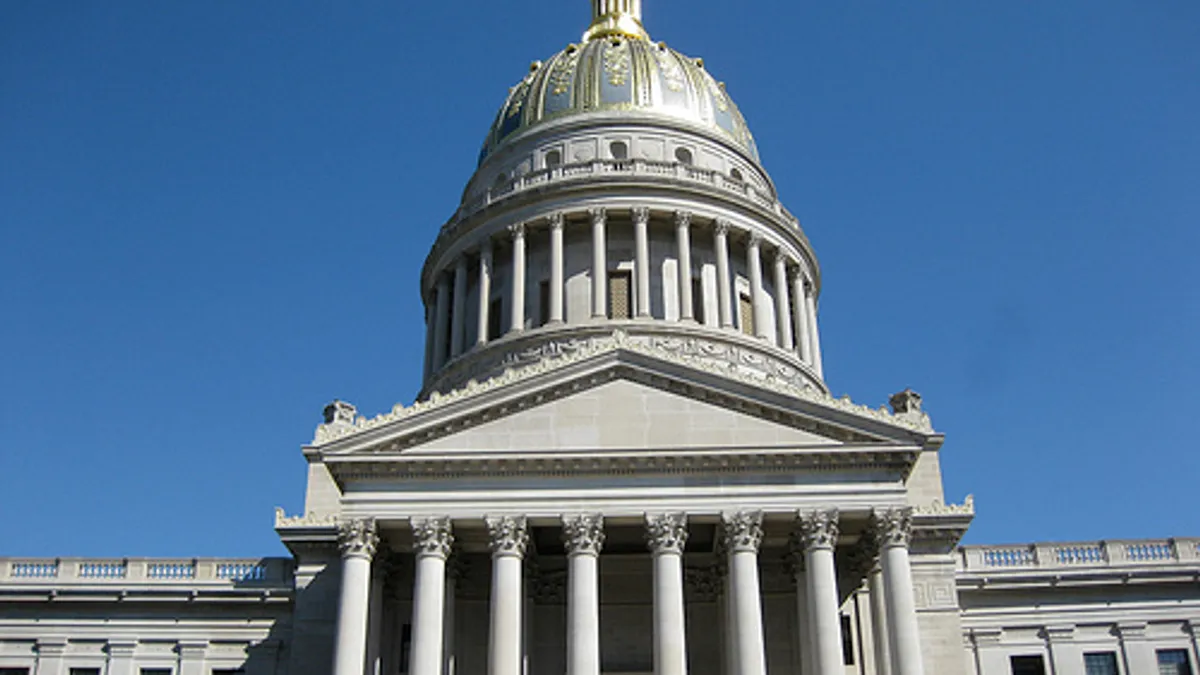Dive Brief:
- The West Virginia Department of Environmental Protection has released detailed analysis of how it could meet Clean Power Plan requirements, finding the state will need to participate in a national market for trading allowances in order to meet the new emissions rules, ClimateWire reports.
- However, the state has a law in place which restrict allowance trading as a means of compliance, meaning lawmakers would need to make complicated changes in order to move ahead with the strategy, the report concludes.
- Although West Virginia has joined a multi-party lawsuit challenging the Clean Power Plan, the state last year announced it would go ahead and file a compliance strategy. The state will need to reduce its emissions rate by 37% from 2012 levels by 2030.
Dive Insight:
There are "at least two scenarios" under which West Virginia could economically comply with the Clean Power Plan, a new report from the state's Department of Environmental Protection concludes. But changes to state law will be necessary for either one to be legal.
"The best choice for the state would be to adopt a mass-based state plan with national trading of allowances," the analysis showed. However, "compliance with this rule is not feasible from a legal standpoint. Presently state law prohibits the state plan option projected to have the least impact."
The state moved last year to take carbon trading off the table as a compliance method, ClimateWire points out. That means some changes to state law would be required. And the report included a warning: "The analysis shows that mass and rate-based plans with trading only within the state can be expected to have dramatically negative impacts on the ability of West Virginia-generated power to compete in energy markets."
The problem can be fixed, DEP noted, with changes to state law. And "most of these changes would also be necessary if the state were to adopt the second least impactful state plan option, a rate-based plan with national trading." The report also suggested the Legislature should also clarify that the DEP is authorized to seek a two year extension of EPA’s deadline.
If the Clean Power Plan is implemented, West Virginia "may have difficulty developing a timely state plan submission due to all of the legislative approvals required. Over three successive legislative sessions, WVDEP would have to obtain legislative approval of the changes in state statutes that are necessary to develop a state plan, approval of legislative rules that will comprise the enforceable portion of the state plan, and approval of the state plan itself."
"Very little time will be available to engage stakeholders and the public in order to develop a consensus around a state plan approach before a plan must be proposed," the report warned.














